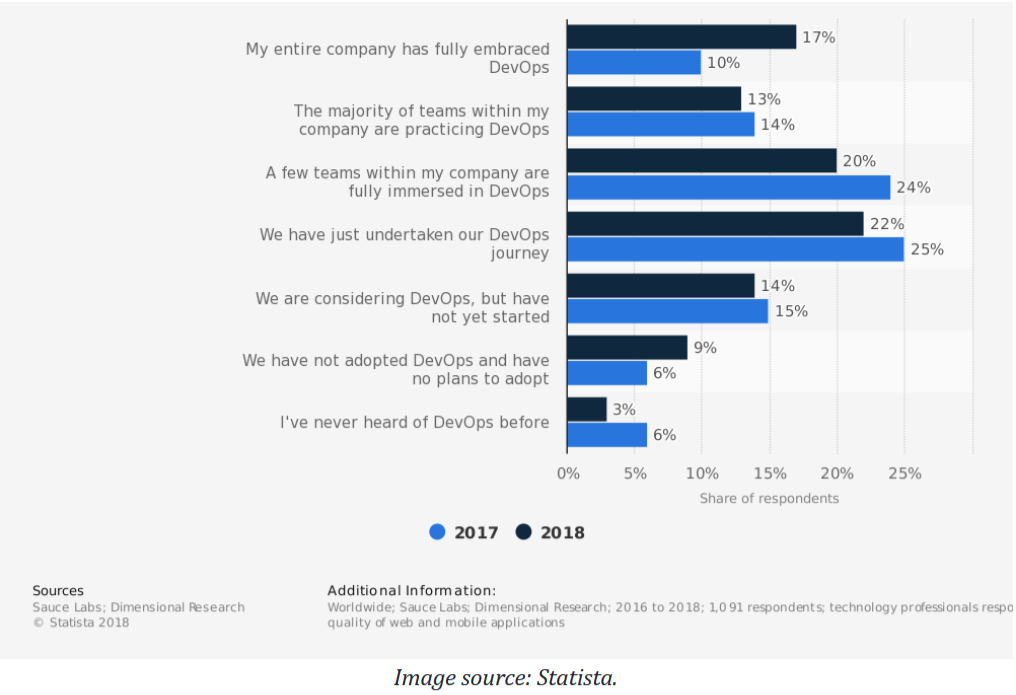
Picture this.
Your team deploys a complex piece of code after working relentlessly for 4 weeks. Post the deployment, the live system works fine and the operations team gives the go-ahead. But after 24 hours, all hell breaks loose.
The recently deployed code is functioning just fine. But the impact is cascaded badly to previous versions with an unpredictable outage. Your product is not working now. The customers start complaining. Your business continuity is disrupted, and the business has an outage for 2 days in a row.
Until you rollback the recent deployment, the incident queue gets messier than ever. Your business continuity is lost and your bank account bears a big dent.
What is Business Continuity?
All businesses—IT-based or others—are viable to face some disruption in their lifetime. To handle and mitigate the issues, you need to have a plan in place that can prevent or recover from the malfunctioning quickly. Such a plan is called a business continuity plan.
Disruptions could make your business unavailable to the stakeholders, clients, and human resources. If the disruption is of the nature of environmental calamity—something beyond your control—you manage the continuity (perhaps after a short outage) using a disaster recovery management system.
If the disruption in normal business is mild like an outage due to a new deployment in the production, DevOps can handle the issue with panache. With DevOps, your end-users will have minimal or no impact after a new code deployment or changes in the live environment.
What is DevOps?
DevOps is an enhanced version of the agile methodology to run IT-based projects efficiently. In Agile, the development team works in short cycles of 2-4 weeks and deliver an independent working product. The operations team (Ops) handles this working product in the live environment.
DevOps has the soul of Agile and works in shorter spans, usually no longer than 2 weeks.
With Agile, the live environment sometimes responds late to the newly developed code. And most of the tasks are manual. When you use DevOps to deploy codes in a project, not only is your development cycle shorter, but the testing is also holistic. It predicts impacts on all the dependent production modules, even before moving the code to production. Additionally, you leverage the power of automation.

A report by Statista mentions that DevOps adoption had increased from 10% in 2017 to 18% in 2018. DevOps is tricky to adopt due to the scarcity of experts and the precise infrastructure it demands with the razor-sharp focus and abiding by the mythology. Despite these, the framework is definitely garnering a lot of positive responses in the IT industry.
The Accelerate State of DevOps Report 2019 compared 1000+ industry performers, and the elite performers had 7 times lower failure rate compared to the low performers. The same report also mentions that the prior group is 2604 times faster than the latter in recovering from incidents.
These numbers and reports are a clear sign that business continuity prevails when DevOps is your project runtime methodology.
How DevOps promote Business Continuity?
In DevOps, testing and operations coincide properly with development. DevOps is a modern example of thoughtful and precise teamwork.
Once a developer completes a piece of code, they release it for various testing rounds. The testing teams identify the impact of the code on the live system. Also, Ops is a part of the development and is aware of every code to be deployed well in advance, unlike any regular project. Hence, they prepare their tasks beforehand. For them, new codes are not a surprise or disaster when they dial in at production work.
DevOps has shorter time cycles in development as compared to any other execution model like Agile or Waterflow models. Teams work in tandem, and continuous integration (CI) and continuous delivery (CD) go parallely. Developers push codes into testing immediately without waiting for others, making the process fast.
In DevOps, CI and CD get equal focus. The DevOps pipelines encompass the complete architecture right from source codes to production and everything in between. Visualizing an impact on all the parts in the assembly is imperative while you push a code upstream towards production via various tests.
Automation is an indispensable part of DevOps. This project methodology has an end-to-end framework with automated tools. The tools make it possible to levitate the speed and explore every possible glitch a code could produce in the live system.
Because of the technologies involved in DevOps, the cloud is the most viable solution for running a DevOps project. And when it comes to cloud, Microsoft Azure has always aced the charts.
Why Microsoft Azure DevOps for Business Continuity?
Heaps of Tools and Compatibility
Azure provides a plethora of tools that help automation in a highly active environment of DevOps. People, processes, and technology are the 3 pillars of DevOps, and Azure practices inculcate all of them with Microsoft-based tools or open source tools.
You can collaborate with developers using non-Microsoft tools like GitHub or Jenkin. Automate your resource management with Terraform or use open source tools like Ansible, Chef, or Puppet.
Full Visibility
Azure establishes a comprehensive end-to-end framework in DevOps with tools that automate much of your manual tasks. Azure Boards aid projects using Kanban for managing their planning and execution. The Pipelines in DevOps quickly bring the spotlight to any code that has a dependency on a shared file or code and is interrupting the dependent piece of work.
Security
DevOps projects are of an open nature. Collaboration with open source technologies is common to automate tasks. In such cases, security—that too on the cloud—is a common concern you might have. But rest all your fears with Microsoft Azure DevOps platform. Their enterprise-level security is top-notch in the industry.
Cloud Benefits
Even if you keep aside the pay-as-you-go benefit of the Azure because it has a limited role in business continuity, you can still enjoy many cloud benefits. Microsoft assures a 99.995% reliability in recovering from downtime. This is an assurance that you need not worry about business continuity.
Conclusion
Wouldn’t you like to see yourself delivering projects faster and cleaner than earlier, like the 63% of organizations are doing? It is such a breeze to the operations team to see a 60% gain in their precious time while tackling tickets and incident queue.
If you want to be a part of a fast-growing development culture and cut your production incidents with fast code deployments, Microsoft Azure is the right platform to implement your DevOps based project.
Whether you are an SMB or an enterprise-level organization, we have every resource to assist you from scratch. Contact us for a quick discussion.